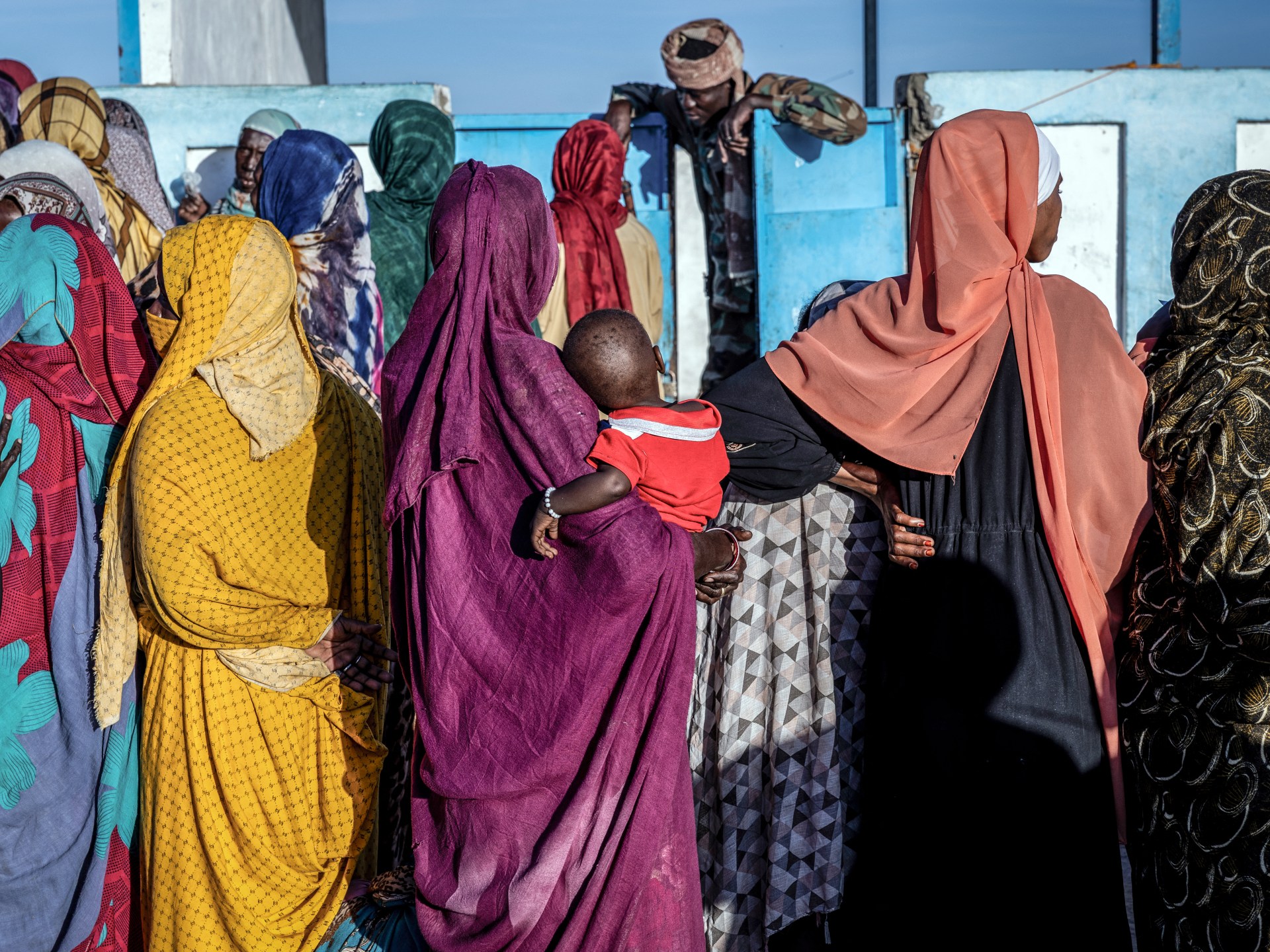Last week, 42 migrants were presumed to have drowned in the Mediterranean Sea after their dinghy set sail off the Libyan coast.
At least 29 of them were Sudanese refugees who fled the catastrophic civil war in their country between the paramilitary Rapid Support Forces (RSF) and the regular army known as the Sudanese Armed Forces (SAF).
Recommended Stories
list of 3 itemsend of list
Since erupting in April 2023, the Sudan war has caused the largest displacement crisis in the world.
Nearly 13 million people have been uprooted from their homes and more than four million have fled to neighbouring countries, such as Chad, Egypt and Libya.
According to the United Nations Refugee Agency (UNHCR), more than 86, 000 Sudanese nationals are registered as asylum seekers or refugees in Libya – a 60, 000 uptick compared with before the war.
As more Sudanese attempt to reach Europe from Libya, this is everything you need to know about their plight.
How many Sudanese asylum seekers have reached Europe since the war started?
From April 2023 to January 2024, the European Union Agency for Asylum (EUAA) registered nearly 10, 000 asylum applications from Sudanese nationals across the European Union – nearly twice as high as the previous year.
While figures for 2025 have not yet been published, the growing number of Sudanese nationals arriving in Libya suggests that more people are aiming to reach Europe as their final destination.
“I hope to soon take the journey across the sea to Europe”, Hamid, a Sudanese refugee from Khartoum, told Al Jazeera from Libya, where he arrived earlier this year.
“Hopefully, God will make the journey safe”, he added with resignation.
How are Sudanese asylum seekers treated in Europe?
Only a minority of the 10, 000 Sudanese asylum seekers have been granted protection so far, with the rest either rejected or waiting for a ruling.
In general, life has not been easy for many young Sudanese men after reaching Europe.
Some EU states are using anti-smuggling laws to criminalise young men for steering the small and overcrowded boats that smugglers put them in.
In Greece, more than 200 Sudanese minors and young men between the ages of 15 and 21 are facing smuggling charges.
Some have already been convicted and sentenced to decades or life in prison, pushing their lawyers to appeal.
Migration experts have long explained that vulnerable youth often agree to “steer” boats in exchange for a discounted price from smugglers, who often charge thousands of dollars from destitute asylum seekers looking for safety.
Does Europe bear responsibility for Sudan’s crisis?
The Nomadic “Arab” government-linked Popular Defence Forces, known as the Janjaweed militias, that spearheaded a brutal campaign in the far western region of Darfur at the turn of the millennium, have created the RSF, which has committed countless atrocities throughout the war.
Later, those militias were accused of committing numerous war crimes and crimes against humanity against primarily sedentary “non-Arab” communities.
According to a number of legal scholars and human rights organizations, the atrocities may have been equivalent to genocide.
However, Sudan’s then-President Omar al-Bashir converted many of the Popular Defense Forces militias into the RSF in 2013.
The RSF quickly touted itself as a potential partner in the Sahel and Horn of Africa’s “manage migration” mission in a bid to gain international legitimacy.
The “Khartoum Process,” an initiative that increased cooperation between the EU and East African countries to combat irregular migration, was announced by the EU in 2014.
Over the course of five years, Sudan received about $200 million in this endeavor.
Suliman Baldo, a researcher in Sudan, discovered that some of this money had been used to improve the judiciary and law enforcement, and that it may have been used to fund the RSF.
The EU has long denied that any entity provided funding for the RSF.
The EU suspended all migration cooperation after the Sudanese security forces, including the RSF, killed more than 120 pro-democracy protesters in Khartoum on June 3.
Source: Aljazeera

Leave a Reply